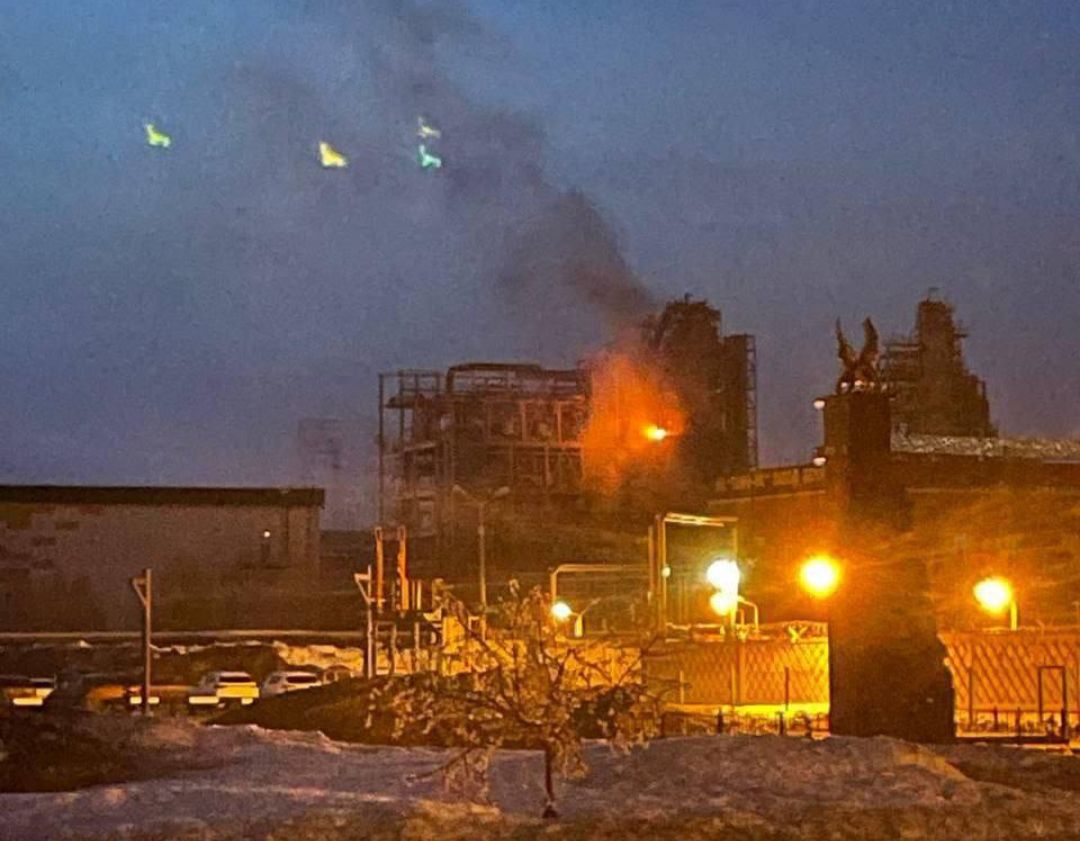Austin: Ukraine's attacks on Russian oil could threaten global energy market

U.S. Defense Secretary Lloyd Austin warned that recent Ukrainian attacks targeting Russian oil refineries could have a "knock-on effect" on the global energy market, Bloomberg reported on April 9.
Ukrainian forces have launched a series of drone strikes aimed at damaging Russia's oil industry. A total of 12 Russian oil refineries were reportedly successfully hit in multiple regions deep inside Russian territory as of March 17.
Ukraine also attacked one of Russia's largest oil refineries on April 2 in the city of Nizhnekamsk in Tatarstan, over 1,000 kilometers (620 miles) from Ukraine's border.
The U.S. has been attempting to restrict Russian petroleum exports that fuel the ongoing Russian war in Ukraine while keeping global energy markets supplied to cool inflation and ease a soft-landing for the worldwide economy, Bloomberg's article said.
According to the media outlet, a price cap on Russian oil exports was a successful tool, but concerns have risen, as "global oil prices hit the highest in almost six months, mainly on Middle East tensions."
"Ukraine is better served in going after tactical and operational targets that can directly influence the current fight," Austin said during the Senate Armed Services committee meeting.
Austin's position was criticized by Republican Senator Tom Cotton, who blamed U.S. President Joe Biden's administration for "discouraging effective Ukrainian action for political reasons," Bloomberg wrote.
According to the media outlet, Russia's seaborne crude exports dropped at the beginning of April compared to the year-to-date high reached the previous month, reportedly due to reduced shipments from the country's Baltic ports.
Bloomberg said that last week's drop was also caused by fewer cargoes from Primorsk and Ust-Luga, where volumes declined by about 20%.
"The pullback followed a surge in flows from those ports in the final two weeks of March amid the Ukrainian drone strikes on refineries, which may have diverted crude into exports rather than processing," the article read.
Earlier, U.S. Secretary of State Antony Blinken said the U.S. has "neither supported nor enabled strikes by Ukraine outside of its territory," responding to a question from a journalist about the Ukrainian strikes on Russian oil refineries.
Reuters reported on April 4, citing unnamed sources familiar with the matter, that Russian companies face difficulties repairing oil refineries due to Western sanctions, and Ukrainian attacks could worsen the problem.












